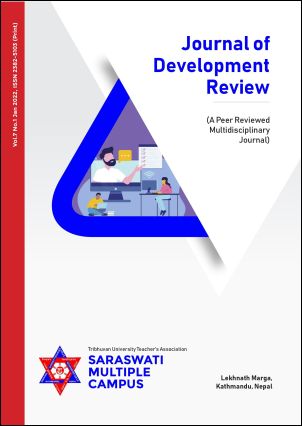Historical Study on Sustainable Tourism Practice in Nepal
DOI:
https://doi.org/10.3126/jdr.v5i1.51135Keywords:
conservation, eco-tourism, eco-tourism projects, sustainable tourismAbstract
Sustainability principles refer to the ecological, economic, and socio-cultural aspects of tourism development and a suitable balance between these three dimensions to guarantee its long-term sustainability. Ecotourism is a burning issue and one of the fastest-growing sectors in the world tourism industry. Many developing countries like Nepal are trying to use ecotourism as a tool to achieve sustainable tourism goals. The UN Sustainable Development Goal 12 focuses on sustainable tourism. From the Nepalese perspective, tourism is gradually heading towards mass tourism. So it is the right time to implement the principles of sustainable tourism for its sustainable development. Nepal Tourism Policy 2009 identifies the tourism sector as an important vehicle for economic and social development. Directions set by the policy such as quality improvement of tourism services, increasing revenue, and expansion of employment opportunities to improve the living standard of Nepalese people. Vision 2020 focuses on sustainable tourism envisions of increasing tourist arrival to two million and tourism-related employment to one million. It is no doubt that proper use of sustainable tourism principles can be very beneficial in various aspects. Sustainable tourism has been priorities by the Nepal government for a long. However to achieve its objectives, in the context of the Nepalese tourism industry, much more has to be done in days to come.




